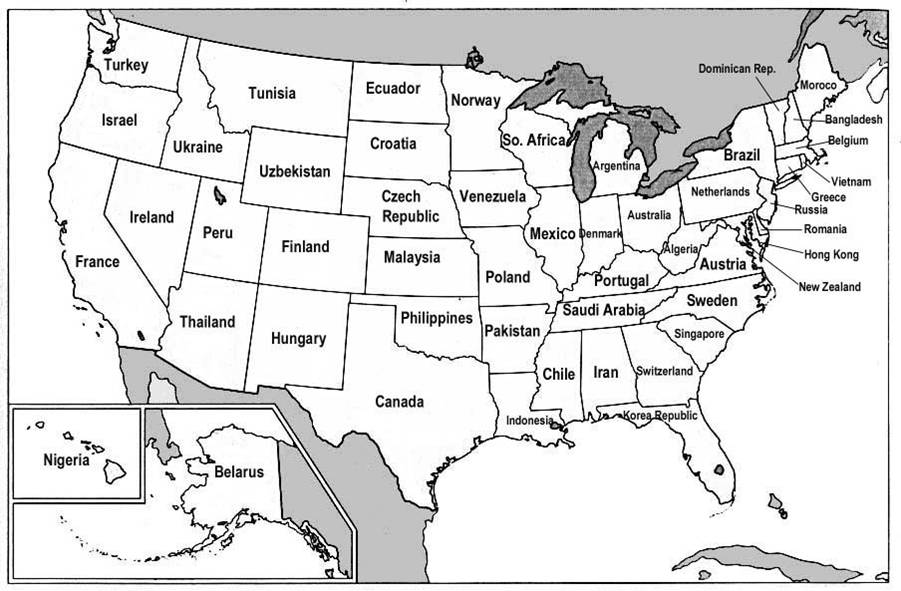Friday, November 23, 2007
An Armed Population Is a Free Population
Wednesday, November 21, 2007
Economics 101

When we talk about being in the Global Economy, the illustration as the right is a great visual aid. It shows what the US economy would look like broken down and states put side by side with their comparable country in regards to economic output. Click here for source. You can also click on the map to enlarge.
Tuesday, November 20, 2007
Preserving West Virginia's History
Monday, November 19, 2007
WV Democrats set up the WV Republican Executive Committee?
68 members of the Republican Executive Committee are all based on the states senatorial districts. Those 17 districts were drawn by the Democratic controlled legislature. They were gerrymandered to limit Republican power in the state. Think about that for a minute. The WV Republican Party is using districts designed by Democrats to limit the power of Republicans as a basis for a large portion of the Republican Executive Committee. Does that make any sense?
It goes further. Under the Republican party platform; I The Government, O. Providing legislative reapportionment with no gerrymandering by the majority leadership, with 100 single-member House of Delegate districts and 34 separate State Senatorial districts that respect community boundaries for increased accountability. OK that is our position, but because we are using the Senatorial Districts drawn by the Democrats we have the very overlap in the 8th and 17th Senatorial Districts we are taking a position against. Does that make any sense?
The Senatorial Districts drawn by the Democrats do not even represent equal numbers of Republicans. 4 Executive Committee Members in some districts represent a large number of the states Republicans, and in others the 4 only represent a few. Does that make any sense?
Our goal as Republicans is to make the state a better place for all West Virginians. Should we look at implementing our own values and our own ideas in our own executive committee?
- 17 Separate - 4 member executive committee districts
- Equal number of Republicans in each executive committee district
- or County Districts with members allocated by Republican Population
- No overlapping executive committee districts
- No use of districts designed by the Democratic Party
Lisa Peana enters District 17 House Race
PRESS RELEASE Contact: Lisa Peana
Monday, November 19th, 2007 (304) 730 - 4599
PEANA ANNOUNCES CANDIDACY
Wayne County Republican to run on Tax Reform, Justice Reform and Sunshine Laws
Ceredo, WV – Lisa Peana has tossed her hat into the ring for a seat in the House of Delegats, District 17, Wayne County.
“We need a change in Charleston”, Peana announced, “ We need Fair Taxes for our citizens and businesses, we need severe Justice Reform to bring the courts back into balance and Sunshine Laws to allow transparency so the public knows how their government is operating.”
Peana is a Real Estate Agent for Metro Properties. As a business woman Peana has seen first hand the impact of unfair taxes, and unbalanced courts both on individuals and businesses. “We have a bloated government bureaucracy in West Virginia, and the only cure is to have comprehensive reform both in our tax code and judicial system. When the size of our government grows at a rate faster than the average household income, you have a problem.”
Peana vowed to fight for social issues as well. She said that she makes a promise to push for legislation that will protect the unborn, traditional marriage and gun ownership rights.
President of the West Virginia Republican Club, Peana is the wife of an Air Force veteran, Jamison Jeffrey. They have a son, Anthony who is in grade school.
